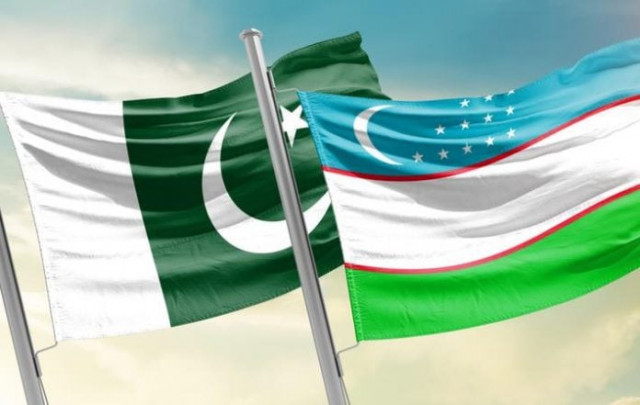Pakistan-Uzbekistan PTA to take effect in Feb
Two countries aim to enhance trade to $1 billion

Amid issues being faced in Afghanistan by both sides, Pakistan and Uzbekistan signed an agreement on Monday to implement the Pakistan-Uzbekistan Preferential Trade Agreement (PTA), which would take effect from February 1, 2023, aimed at enhancing the trade volume to $1 billion.
To overcome the problems being faced by Pakistani/Uzbek transporters, both countries agreed to take up all the relevant issues with the Afghan authorities. This will be done in a joint visit to Kabul to be undertaken in the last week of January 2023, after finalising a joint agenda to be presented to the Afghan side.
In addition to this agreement, the countries signed eight other agreements to boost bilateral relations in different sectors.
The Uzbek side will complete internal formalities in January 2023 while the Pakistan side has already completed the same to implement the PTA from February 1, 2023.
Federal Minister for Commerce Syed Naveed Qamar signed MoUs with Uzbek Deputy Prime Minister Khodjave Jamshid Abdukhakimovich on
Monday. Both sides discussed the implementation of the agreement between Uzbekistan and Pakistan on Transit Trade (AUPTT). Uzbekistan will notify rules in this regard in February 2023.
Both sides agreed to formulate a joint strategy to facilitate transit trade through Afghanistan. A regional unnderstanding on transit and trade framework is to be prepared including a joint funding mechanism for upkeep of road infrastructure in Afghanistan.
The purpose of the meeting was to follow up on the initiatives undertaken between the two countries and prepare an action plan to enhance the trade turnover to $1 billion. The two sides agreed on the following points and a joint action plan proposed by Uzbekistan.
Both sides agreed to start awareness sessions for business communities of both countries. Furthermore, the Uzbek side said that their country would become a member of the World Trade Organisation (WTO) in 2023. The Pakistani side offered its full support in this regard.
The Uzbek side requested for an off-dock terminal for Uzbek cargo at Karachi and Gwadar, to which the Pakistani side offered full facilitation. Both sides also agreed to organise trade exhibitions and prepare a strategy for cooperation in the realm of e-commerce.
Uzbekistan informed Pakistan about ‘ Termez Economic Zone’ and the incentives being offered. The Pakistani side agreed to disseminate this information to the business community.
Earlier, Uzbekistan’s president visited Pakistan on March 3, 2022 and during his visit, Pakistan-Uzbekistan Transit Trade Agreement (AUPTT) had been operationalised through the clearance of first-ever transit trade consignment to Uzbekistan.
As a follow-up, Tajikistan also signed a transit trade agreement with Pakistan during the visit of Tajik president this month.
Pakistan has been struggling to tap the potential of exports to Central Asia that could also become a gateway for trade with Russia. However, the Afghanistan situation has been a key impediment in trade between Pakistan and Central Asian Republics (CARs). During the previous government of Ashraf Ghani in Afghanistan, Pakistan also faced problems in increasing trade with CARs.
After the takeover of the Taliban in Afghanistan, many people believed that there was a uniform government in Afghanistan and therefore, there would be no further bottlenecks in trade with CARs. However, Pakistan and CARs are still facing problems in easing trade and removing hurdles due to the tense situation in Afghanistan.



















COMMENTS
Comments are moderated and generally will be posted if they are on-topic and not abusive.
For more information, please see our Comments FAQ